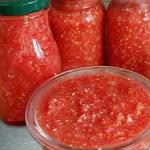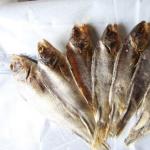Allergy to pear: symptoms and treatment. Complications of pear allergy in a child. Pear puree can be canned
Allergy – one of the most common diseases throughout the world. Increasingly, it appears as a result of using even healthy vegetables and fruits. For example, on a pear. The body's reaction to this fruit has its own characteristics. People should know how such allergies manifest themselves. Especially if a person is prone to allergic reactions. And not only for food, but also for plant pollen.
Allergy to pears
The peculiarity of this disease is that it is often of a cross nature. So, for example, if a person is allergic to the pollen of certain trees, for example, alder, then he may also be allergic to pears. In addition, a person whose body does not accept pears may also suffer from an allergy to apples.
The disease is quite common. It occurs in both adults and children; when it appears in childhood, it may subside over time. For adults, it stays for life. The reasons for the problem are different. Signs may also vary between patients.
Causes of an allergic reaction to pear
The main cause of allergies is a malfunction of the immune system. In this case, the body’s defenses perceive any substance, usually protein, as dangerous and begin to fight it. Another, no less common reason is heredity.
A child with a hereditary predisposition will have the problem for life. While allergies that arise against the background of decreased immunity go away over time. It should be noted that any substance in the pear can cause a problem. And at the same time, it is almost impossible to independently determine that it was the pear that caused the allergy. Since signs may appear some time after consuming the product.
Symptoms of the disease
The symptoms of the disease are often quite acute. In most cases, it is similar to allergic reactions to other foods or pollen. Since it is a food-borne disease, the stomach and intestines are primarily affected. But in different patients, symptoms may also arise from other organs or systems.
Manifestations of allergies:
- Nausea;
- Vomit;
- Pain in the abdominal area (sometimes quite acute, reminiscent of food allergies);
- Teariness and redness of the eyes;
- Allergic rhinitis;
- Difficulty breathing, up to bronchial spasm.
In particularly difficult cases, the development of bronchial asthma is possible. It's not uncommon for babies to develop a severe rash, especially on the face.
Important: any manifestation of allergic reactions requires medical consultation! It is strictly forbidden to take any measures without an allergist. An incorrect approach to solving the problem can provoke an exacerbation of the disease and complications. Only a doctor should prescribe therapeutic measures!
Treatment of pear allergies
Treatment of the disease first begins with the abolition of the allergen. But it is possible to cancel the substance that provoked allergies only after it has been identified. To do this, you need to take a blood test for immunoglobulin levels. On the recommendation of the doctor, other studies are also used to help determine the type of allergen.
Pear causes allergies and this has long been a proven fact, but without certain tests it is impossible to determine which particular substance in the fruit is potentially dangerous for humans. The effectiveness of treatment directly depends on this aspect. In addition to eliminating the allergen from the diet, and in the case of a cross type, from the patient’s environment, a person must take medications recommended by an allergist.
As a rule, in such cases, antihistamines are prescribed (usually 3 generations). Also, in case of food allergies, sorbents are prescribed, which help to quickly cleanse the body of dangerous substances. Doctors recommend topical medications depending on the manifestations of allergic reactions. But, basically, the first 2 categories significantly alleviate the condition.
If a person has a desire to use alternative medicine, he can do this only after preliminary consultation with an experienced specialist.
Folk remedies to combat pear allergies
Professionals emphasize that some unconventional methods make it possible to completely get rid of allergies. At the same time, we must not forget that each person is individual. A remedy that benefits one person can provoke an aggravation in another.
The safest solution is considered to be mumiyo, which is used for internal or external use. It is prepared quite simply. You just need to dilute 2 grams of raw material in a liter of warm water. Please note: high-quality mumiyo dissolves almost instantly. If the raw material does not dissolve within a few minutes, you should not use it.
Allergy to pears is not an easy problem, but it is quite possible to prevent its occurrence. If a person is prone to allergic reactions, especially to food or pollen, then he should first make sure that the pear will not cause a problem.
If an allergy to pear is confirmed, you may have to give up apples and quinces. It should be noted that the problem sometimes appears only on raw fruit. This may be due to a decrease in useful things when heat treatment. And at the same time, you should not risk your health by trying boiled or baked pears.
The medical term allergy refers to the body's response to certain irritants. Allergens can include animal hair, various medications, food, dust, pollen and much more. Number of people suffering various types allergies have increased greatly recently. Even some fruits can provoke some allergic reactions.
Pear is a very healthy fruit that has a positive effect on the performance of the gastrointestinal tract in children, adults, and infants. It contains a large number of vitamins that help improve immunity.
This fruit is recommended to be taken as a prevention and treatment for a disease such as osteoporosis, because it contains a large amount of calcium, at the same time, regular consumption of this fruit reduces the chances of developing cancer of the gastrointestinal tract.
Reasons for the development of allergic reactions
The main cause of allergies is hereditary factor. If one of the parents suffers from this disease, then the child’s chances of acquiring an allergy increase by 10-15%; if both parents suffer from an allergy, then the child’s chances of developing an allergy are almost 100%.
An important reason is reduced human immunity, which leads to allergic reactions.
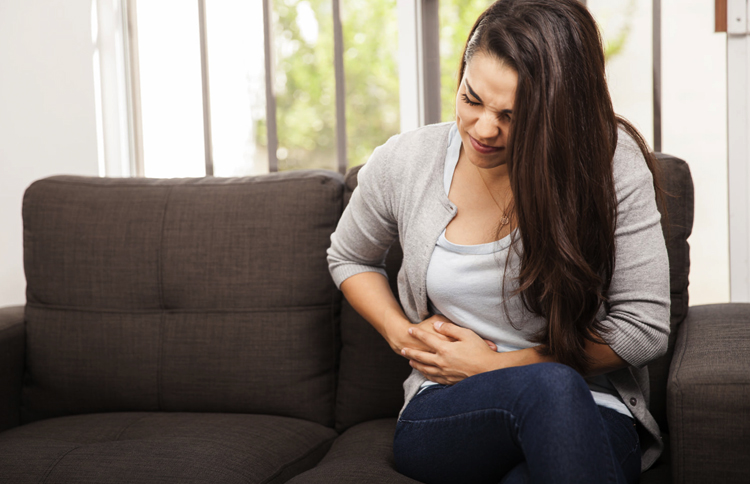
Symptoms
The symptoms of the disease manifest themselves with the same signs and are almost the same in both adults and children, it’s just that in childhood these symptoms are more pronounced.
In young children, the following changes are observed in the body:
- Painful sensations appear in the abdomen.
- Diarrhea or constipation develops.
- Infants experience frequent regurgitation.
- Redness of the skin.
- Peeling of the skin; in especially severe cases, detachment of the epidermis and the formation of blisters are observed.
- Problems arise with the respiratory process, a runny nose appears, and clear discharge comes out of the nose.
- In especially severe cases, asthma, bronchitis appears, and the lungs also swell;
- Lymph nodes enlarge.
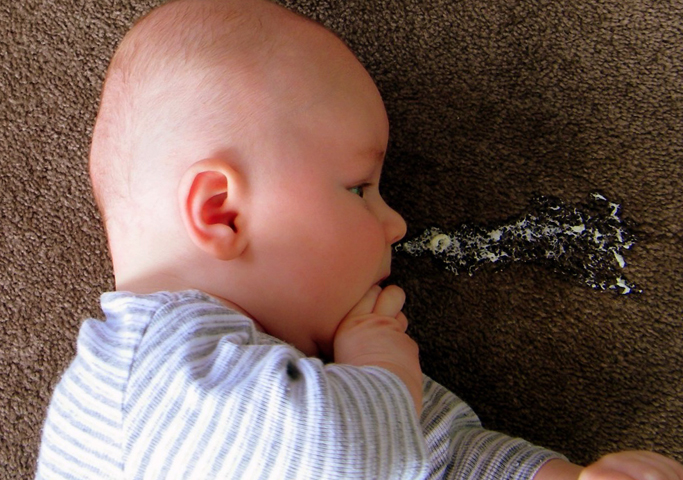
In older children and adults, itching of the skin, pain when swallowing, shortness of breath, and cough also appear.
Diagnostics
At the first sign of an allergy, it is necessary consult an allergist, who will first conduct a general examination and collect anamnesis. Next, a clinical blood test is performed, which reveals the presence and amount of antibodies characteristic of this disease and helps to determine the exact allergen.
In order for parents to notice an allergic reaction in infants in time, they need to introduce a so-called food diary, in which they must write down exactly what their baby ate during the day. It is especially important to write down new foods introduced into your diet. New food products must be introduced 4-5 days after the previous ones. Keeping such a diary significantly increases the chances of recognizing an allergy to a certain irritant in time.
Allergy treatment
The main method of treatment is complete eliminating pears from the diet child, adult or infant. If a mother is breastfeeding her newborn, she should completely exclude this product from her diet.
You can replace the pear with any other fruit; grapes, berries, and bananas are suitable for this.
During the treatment period, the doctor often prescribes antihistamines (Zodak, Cetrin, Suprastin), which suppress the effect of free histamine. Before using medications, be sure to consult your doctor. Symptomatic treatment is often carried out, which boils down to relieving accompanying symptoms, for example: itching, redness of the skin, nasal congestion.
Alternative medicine also offers a number of methods to combat the body's intolerance to the allergen, for example: various herbal decoctions and lotions. But resorting to the help of alternative medicine in this case is still not recommended, since under bad circumstances, allergies can lead to death, so it is strongly recommended to contact a specialist and fully follow his instructions.
The doctor takes a particularly responsible approach to the selection of medications for children, because many drugs have a number of side effects.
When providing emergency assistance, adrenaline is injected intravenously; most often this method is used when angioedema occurs or when an asthma attack occurs.
Preventive measures
In order to prevent an allergic reaction in the baby, a pregnant woman needs to follow healthy lifestyle, completely give up alcohol and smoking.
If you are allergic to pears, it is completely recommended to remove this fruit from your diet, and also have antihistamines and an adrenaline ampoule in your medicine cabinet.
It is very important that teachers and other employees of child care institutions are informed about the presence of intolerance to certain substances in their wards and can provide first aid if an attack occurs.
Additional Information
Among the fruits, the most allergenic are pears, apples, and stone fruits. Most often, intolerance is associated with pollen: if a person’s body cannot tolerate pear pollen, then most likely he is also allergic to pears themselves.
It is also worth remembering that during heat treatment of fruits, including pears, allergens are destroyed. In young children, most often intolerance to various components goes away on its own by the age of five.
Most often, intolerance in the body is caused by the variety of pears Williams.

Doctor visit

Doctor visit

Doctor visit

Doctor visit
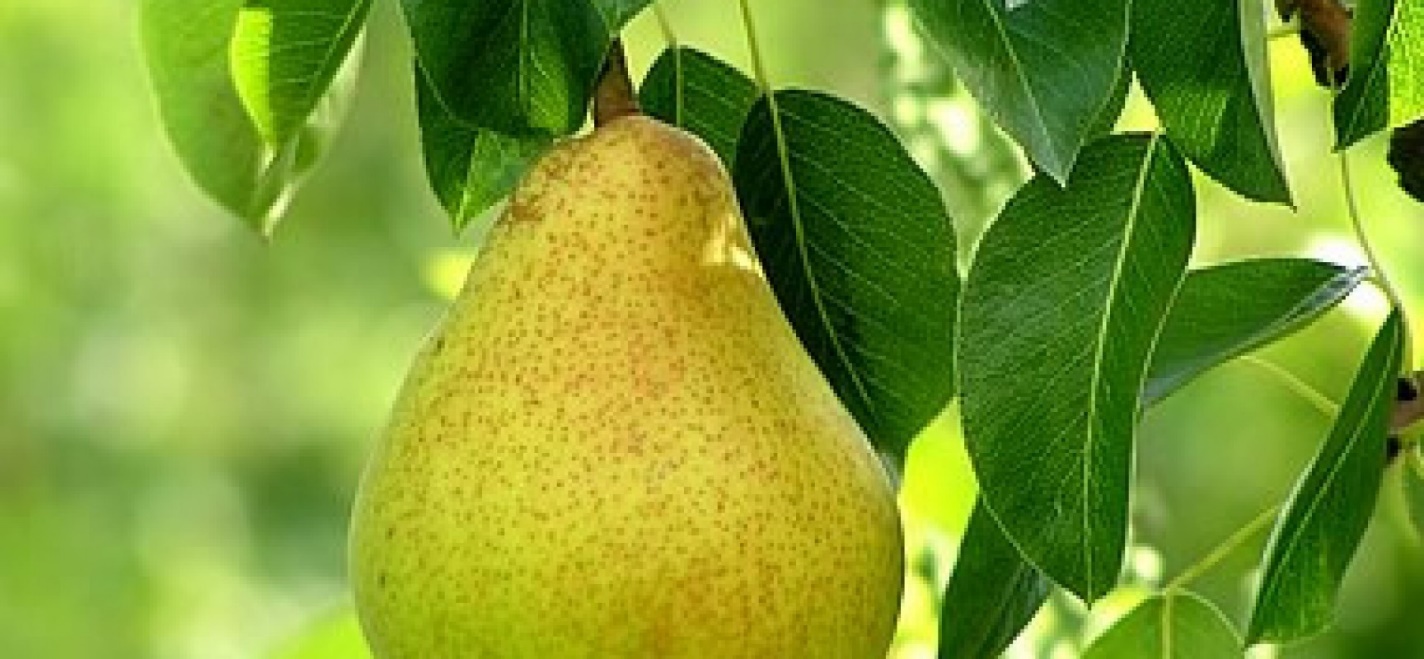
Every person needs a strong immune system. It allows you to effectively resist most diseases. One of the most accessible fruits that can provide serious support to the immune system is the pear. With regular consumption of this fruit, the immune system is noticeably strengthened. This is due to the presence of antioxidants such as copper and vitamin C in pear fruits. Without these elements, it is difficult for the body to resist dangerous viruses.
Pear fruits also contain boron. Thanks to it, the body has the ability to retain calcium. The fruit is also famous for containing a large amount of fiber, which has a positive effect on the functioning of the digestive system, simultaneously reducing the risk of neoplasms. A medium-sized fruit contains almost 25% of a person's required daily fiber intake. Unfortunately, consumption of pears in humans can also cause negative reactions. Allergy to pears occurs in approximately 5% of people.
Symptoms of pear allergy
Adults and children are susceptible to allergies. Symptoms can be expressed with varying degrees of strength. Quite strong reactions are possible, although they are quite rare. In children, painful symptoms are more pronounced.
An allergy to pears may be indicated by:
problems in the digestive system (abdominal pain, vomiting, loose stools, constipation);Problems with the respiratory system (runny nose, rhinitis, conjunctivitis, signs of bronchospasm);
Skin problems (itching in different areas, swelling, appearance of extensive red spots).
If lesions of the esophagus occur, the sick person may complain of severe chest pain when swallowing. Dysphagia is also observed. An allergy to pears can cause damage to the intestinal and gastric tract. In moderate cases, the patient will simply feel pain in the abdomen. More severe cases are characterized by acute abdominal crises. You should be especially vigilant here, because... the existing symptoms may be mistakenly perceived as manifestations of acute surgical diseases of the abdominal cavity. Bleeding inside the intestines and stomach may occur. These cases are the most severe. With strong antagonism to pears, the liver may be affected. The organ increases in size. Jaundice may appear, and the functional biochemical parameters of the body may noticeably change.
Allergy treatment
If an allergy occurs, the patient is prescribed a strict diet. There must be a complete ban on the consumption of pear fruits in any form. Even excluded from the diet pear preserves and products that may contain even trace amounts of fruit. An allergy to pears in an infant can also be treated by strict adherence to the diet by the nursing mother. She should also completely exclude this fruit from her diet. You can try replacing pears with apples in your diet. This should be done carefully so as not to provoke cross-allergy. Good products Grapes and bananas can also be substituted for pears.
3 stages of diet for pear allergies:
The first stage of the “hypoallergenic diet”. It is necessary to exclude from the diet all foods that can trigger the development of allergies. This includes various pickles, smoked meat and fish, spicy seasonings, dairy products. The consumption of salt, cereals and flour is strictly limited. During this period, skin tests are performed to identify the allergen.At the 2nd stage, a diet is drawn up, from which the culprit of allergic reactions is completely excluded until a stable remission occurs (all allergy symptoms disappear).
The third stage involves the gradual introduction of the allergen into the body in small doses. This is done mainly in the morning. The doctor must carry out mandatory monitoring of the patient’s well-being.
If you have minor allergic reactions to pears, you can try eating boiled and baked fruits. During heat treatment of fruits, a significant amount of allergy-causing elements are destroyed. This significantly reduces the risk of allergic reactions.
Related materials:Pear - enough healthy fruit, the use of which enriches the human body with vitamins and strengthens the immune system.
But for some people, this fruit can cause a severe allergic reaction. This response of the body is a hereditary factor.
Let’s say that if the baby’s mother suffered from an allergy to fruits, it is quite possible that similar reactions would occur in her child.
Relatively often, an allergy to pears is accompanied by a similar reaction to quinces and apples. There are cases when an allergy occurs not only when eating a pear, but also when a tree blooms - to pollen.
It should be noted that pear allergens are destroyed during heat treatment, and allergy sufferers can often eat this fruit after boiling, baking, etc.
Symptoms of pear allergy
People of any age group are susceptible to allergies to this fruit. most often more pronounced in children than in adults.
The body's reaction to an allergen is manifested by the following symptoms:
- Digestive (vomiting, diarrhea, abdominal pain);
- Problems with the respiratory system (severe conjunctivitis, spasms in the bronchi, nasal congestion,);
- (urticaria, swelling).
In case of severe damage to the esophagus, the patient experiences severe chest pain and dysphagia during swallowing. Quite severe pain in the abdominal cavity, stomach and intestinal bleeding may occur. With a pronounced allergic reaction, liver damage and jaundice may occur. The manifestation of certain symptoms is very individual.
Treatment of pear allergies
If allergic reactions occur when eating pears, you should immediately seek help from an allergist.
The hospital conducts a special analysis to accurately determine the allergen. The presence of certain antibodies indicates an allergic reaction to a specific product.
In a medical institution, desensitizing therapy is prescribed, and in particularly difficult cases, potent drugs are prescribed. Modern antihistamines can restore the patient's health.
You should adhere to the diet prescribed by your doctor. It will “put in order” the functioning of the digestive system. In the future, an allergic person should completely exclude pears and their derivatives - dried fruits and candied fruits - from their diet. If an allergy to pollen occurs, you should take the prescribed drops or drops on time.
How to prevent a possible allergy to pears?
It is quite possible to avoid any food allergy, including pears. It should be understood that an allergic reaction to something is a response of an organism with a weakened immune system. And immunity is developed in a person during intrauterine development. An expectant mother who cares about the health of her baby should give up bad habits and an unhealthy lifestyle. Long-term breastfeeding allows the baby to receive the necessary biologically active substances that are so necessary for the growing body. Healthy eating– this is the key to the absence of unwanted reactions of the body.




